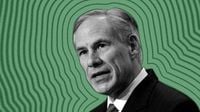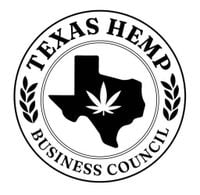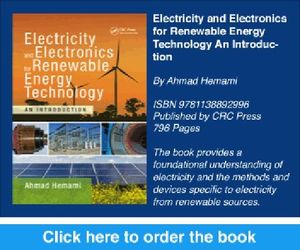In a dramatic late-night decision on June 22, 2025, Texas Governor Greg Abbott vetoed Senate Bill 3 (SB 3), a proposed ban on consumable hemp products containing THC, sparking a rare public rift with Lieutenant Governor Dan Patrick, who had championed the bill as a top legislative priority. Abbott's veto, issued just minutes before the midnight deadline, preserves the state's booming hemp industry and keeps legal THC products accessible to millions of Texans for now, while signaling a deeper divide within the Texas Republican leadership on cannabis policy.
SB 3 sought to outlaw the possession, sale, and manufacture of all THC products, including consumable delta-8 and delta-9 THC variants. These products, legalized in part by the 2019 Texas Farm Bill signed by Abbott himself, have become widespread in grocery stores, vape shops, and gas stations across the state. Delta-8 THC, a minor chemical cousin of the more potent delta-9 THC found in traditional cannabis, offers milder psychoactive effects and is often paired with cannabidiol (CBD), a hemp-derived compound widely used for pain relief and mental wellness.
Despite the bill passing the Texas Senate by a 26-5 vote in March and the House by 87-54 in May, Abbott chose to veto SB 3, citing legal vulnerabilities. In his veto proclamation, Abbott described the bill as "well-intentioned" but warned it would face "valid constitutional challenges" that could render it permanently invalidated or delay its implementation for years. He emphasized the need for immediate, strong regulation of hemp products to protect public safety, particularly minors, rather than a sweeping ban that could backfire.
"Texas must enact a regulatory framework that protects public safety, aligns with federal law, has a fully funded enforcement structure and can take effect without delay," Abbott wrote. He urged lawmakers to consider regulating THC products similarly to alcohol, recommending measures such as barring sales and marketing to minors, requiring rigorous testing throughout production, allowing local governments to restrict sales, and providing law enforcement with additional resources.
Abbott's veto put him directly at odds with Lieutenant Governor Dan Patrick, a powerful figure in Texas politics who had made banning THC products one of his "top five" legislative priorities during his 17 years in the Legislature. Patrick launched a public campaign against consumable THC products, including visiting cannabis stores and producing videos highlighting what he described as dangerous practices. He called THC-infused edibles, beverages, and vapes "a poison in our public" and argued the ban was necessary to protect young people from high-potency intoxicants often marketed to children.
Patrick expressed deep disappointment following the veto, posting on social media that Abbott's "late-night veto, on an issue supported by 105 of 108 Republicans in the legislature, strongly backed by law enforcement, many in the medical and education communities, and the families who have seen their loved ones' lives destroyed by these very dangerous drugs, leaves them feeling abandoned." He vowed to address the issue further in a press conference, lamenting the pain of families who testified about tragic losses related to THC products.
Yet the veto also exposed a notable split within the Texas conservative base. Opposition to SB 3 came from libertarian-leaning conservatives, veterans' groups, farmers, and small business owners who warned that banning consumable hemp products would hurt livelihoods and patients relying on these products for pain relief. Veterans, in particular, highlighted the therapeutic benefits of hemp-derived THC as a safer alternative to addictive opioids for managing chronic pain and post-traumatic stress disorder.
The Texas Hemp Business Council, a prominent industry group representing over 53,000 Texans employed in the hemp sector, applauded Abbott's decision. In a statement, the Council said the veto "reinforces Texas' reputation as a leader in business innovation and practical policymaking." They emphasized that SB 3 would have banned federally legal hemp products and pushed consumers toward unsafe alternatives, threatening public health and consumer choice.
According to the Council, Texas already enforces strong hemp regulations under House Bill 1325, which includes strict THC limits, full panel testing, licensing, labeling, and accessible certificates of analysis. They continue to advocate for sensible regulatory measures such as limiting sales to adults 21 and older, requiring child-resistant packaging, and establishing setbacks from schools—proposals that proponents of SB 3 rejected in both the 88th and 89th Legislatures.
Polling data reflects the public's sentiment, with majorities of Texans opposing a full ban on hemp-derived products and supporting the decriminalization of small amounts of recreational marijuana. The Texas Hemp Business Council cited over 150,000 petition signers and thousands of handwritten letters urging Governor Abbott to veto the bill, underscoring widespread grassroots resistance to the ban.
Abbott's veto also came with a call for a special legislative session beginning July 21, 2025, tasking lawmakers with revisiting hemp regulation alongside other unfinished business. The special session agenda includes SB 3's subject matter, alongside bills addressing real property recording requirements, water project fees, affirmative defenses for trafficking victims, cement kiln operations near semiconductor facilities, and judicial branch procedures.
The veto marks a rare moment of public discord between Abbott and Patrick, two key GOP leaders who otherwise aligned on major conservative priorities during the legislative session. The divergence follows past clashes over school vouchers and property tax reforms but contrasts with the overall conservative legislative momentum this year.
As the hemp industry continues to thrive—estimated to generate $8 billion in annual tax revenue and support roughly 50,000 jobs statewide—Abbott's approach reflects a desire to balance public safety with economic vitality and consumer choice. His call for regulation rather than prohibition aims to address concerns about product safety and marketing to minors without dismantling an industry that has become integral to many Texans' livelihoods and wellness.
Meanwhile, Patrick's insistence on a ban underscores ongoing fears among some lawmakers and advocacy groups about the risks posed by intoxicating hemp products, especially to youth. The debate highlights the complexities of cannabis policy in a state grappling with evolving public attitudes, federal law, and economic interests.
In the face of this contentious issue, veterans, small business owners, and hemp advocates remain vocal, emphasizing the benefits of access and the importance of sensible regulation. As the special session approaches, Texas stands at a crossroads on how to best manage its hemp industry—a decision that will have lasting implications for public health, the economy, and the state's political landscape.






